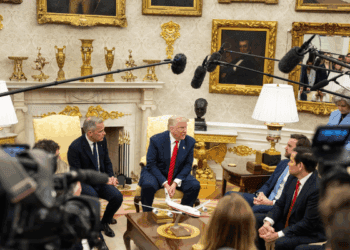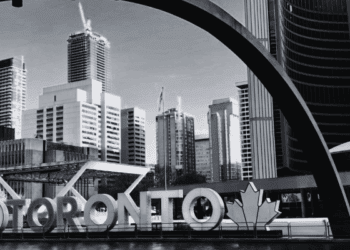In the Globe and Mail, MLI Managing Director Brian Lee Crowley writes that 2017 predictions will invariably include popular myths that are “drearily predictable but that we should seek to stamp out for the economic, physical and mental health of us all”. He singles out myths about fossil fuels, the causes of poverty, and the behaviour of corporations for eradication in the New Year.
Brian Lee Crowley, Dec. 28, 2016
What with Brexit and Trumpism triumphant in the face of almost universal disdain by pollsters and purveyors of elite opinion, you might think this is a particularly tricky end-of-year in which to indulge in prognostication. Not a bit.
This year is no worse than when British Prime Minister Neville Chamberlain said there would be peace in our time, Ugandan dictator Idi Amin said he was proud to be known as the conqueror of the British Empire, U.S. music-industry executives predicted that the Beatles would have little impact on the American market, or the Y2K bug was expected to bring civilization to an ignominious end.
If you want a good chance of your prediction being right, however, it is better not to go for the showy Nostradamus kind – spectacular when you make it, but quickly forgotten by all except by your small band of acolytes who swear that the bungled prognostication will come to pass … eventually.
Far better to stick with things that are drearily predictable but that we should seek to stamp out for the economic, physical and mental health of us all. Here are my favourite three:
First, you will hear endlessly repeated that we must get off fossil fuels or we are all doomed.
Like all previous such jeremiads, this too will prove to be a colossal misunderstanding egged on by misplaced moral fervour. There is a reason Jeremiah’s name is linked forever to ill-tempered rants.
Fossil fuels have many desirable characteristics. Unlike electricity, for example, they are self-storing, but the energy they contain can be released at a moment’s notice. The energy-to-mass ratio of oil makes it an ideal transport fuel for which no real substitute exists. Perhaps most importantly from the human point of view, as the use of fossil fuels has risen over the past two centuries, the number of climate-related deaths (from cold winters, hot summers, and climate-related famines for example) has fallen rapidly. In other words fossil fuels are a valuable – and to-date largely irreplaceable – protection against the climate’s ravages. Thus the International Energy Agency foresees an inexorable rise in the use of fossil fuels for decades to come.
Does that mean we should be indifferent to the GHGs that often accompany the use of such fuels? Of course not. But let’s keep focused on the problem (the GHGs), keep it in perspective, and stop demonizing the fuels themselves. Technological innovation is far more likely to give us solutions to the GHG problem than it is to replace fossil fuels
Second, you will hear that the wealthy developed countries are the cause of the poverty of the developing world. This is a classic example of mistaking cause and effect. Countries that have cut themselves off from the West’s lessons about what causes economic growth (the rule of law, independent judiciary, absence of corruption, reasonable tax burden, openness to innovation, etc.) have languished while strong growth has been the lot of those who adopted what we have learned. Just compare most of sub-Saharan Africa with, say, the Asian Tigers or even “socialism with Chinese characteristics.” And those countries, that are just now sloughing off decades of authoritarian bureaucratized socialism (think India!), are booming while those headed the other way are foundering (Putin’s Russia).
Finally you will be told that giant corporations run the world, dwarfing the size and power of national economies. Piffle. This misunderstands the size of both corporations and national economies. One might be tempted to say, unkindly, that it compares Apples and ORNGEs.
To take one representative example, a writer in the UK’s Guardian newspaper the other day claimed “The biggest 200 corporations now rule the world, and are economically greater than the combined economies of nearly 180 countries.”
No. Sorry. As Tim Worstall of the Adam Smith Institute points out, GDP is a measure of value added, not total economic activity. That’s why trading on the UK’s currency markets is worth $2-trillion daily, but the UK’s entire annual GDP is only $2-trillion. Only the commissions and wages paid from currency trading are counted toward GDP because they represent a good measure of the industry’s value-added.
The equivalent measure for corporations is not turnover but profits made and wages paid. On this measure, “giant” corporations like Apple don’t overshadow countries at all. When nations and corporations are measured by the value each adds to the economy and consumers, corporations are rapidly whittled down to their appropriate size: important but not overpowering.
Being serenely confident that you will hear each of these myths retailed endlessly in 2017 doesn’t make them any less painful to hear. Join me in my New Year’s resolution to do my part to stamp them out in time for 2018.
Follow Brian Lee Crowley on Twitter: @brianleecrowley




